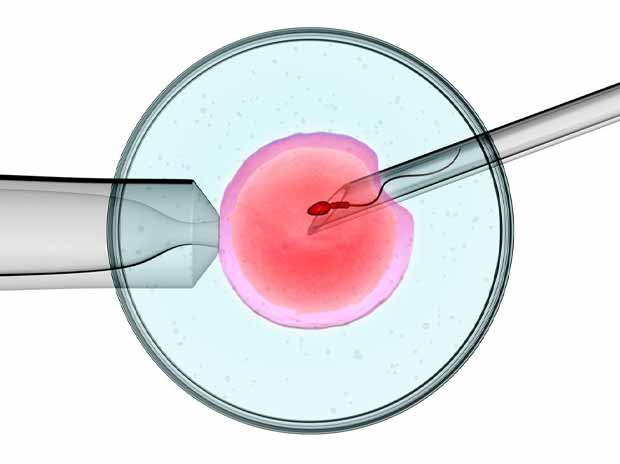What is ICSI and why is it necessary?
Intracytoplasmic sperm injection (ICSI) refers to the technique of injecting a single sperm into the center (cytoplasm) of the egg. In natural conception, many numbers of sperms surround the egg, but only one sperm penetrates and fertilizes each egg. In standard IVF we mimic nature by adding number of sperms to the dish containing the egg. In the technique of ICSI, the sperms are selected based on the activity and appearance. Later, using specialized equipment which allows the egg and sperm to be handled, a single sperm is injected into the mature egg.
Which couples require ICSI?
If there is a sperm problem or having the risk of egg failing to fertilize, ICSI is recommended. If there is no sperm problem, the IVF process is recommended. Sometimes, the sperm sample may be unexpectedly poor on the day of egg collection. If this happens, we will carry out ICSI to try to achieve fertilization. We may also recommend ICSI if you have had standard IVF and there was a very low fertilization rate or no fertilization. This may happen even if there is no sperm problem. If this happens in your case, we will discuss the alternatives and whether ICSI is likely to help.
How is ICSI carried out?
Every aspect like egg recovery, producing a sperm sample, hormonal simulations, and embryo replacement are the same or identical in ICSI and IVF techniques except the method of fertilization. The embryologist sees inside the egg after removing outer cells from each egg to access whether the egg is mature or not. Only matured eggs can be used in ICSI whereas all eggs can be used in IVF. In most treatment cycles, approximately 80% of eggs are mature. The sperm are prepared as normal for IVF. The embryologist then picks out individual live sperm, of normal appearance and injects one into each egg, using a special glass needle.
How successful is ICSI?
About 60% of eggs will be fertilized by ICSI which is similar to IVF. Reasons for not being 100% successful are
· The eggs which aren’t matured cannot be injected.
· Some eggs might be damaged during an injection procedure.
· Many sperms don’t have the capability of activating the egg when injected directly.
Embryo development is similar for ICSI and IVF on following successful fertilization.
What risks are associated with ICSI treatment?
ICSI offers the opportunity of success for couples. However, it also additionally carries risks over and above those of IVF treatment in general. It is known that abnormal sperm production, as is the case in men with very low sperm count or absent sperm in the ejaculate, can be associated with genetic defects in the male. There may be a problem of genetic defects directly transmitted to the children by the ICSI technique. There is a possibility of the egg getting damaged by the injecting procedure. Theoretically, this can result in damage to the resulting embryo if the damaged egg is fertilized normally.

